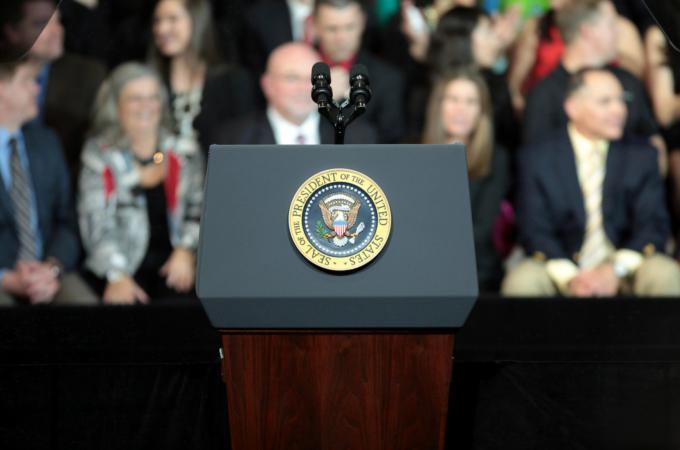The aftermath of Election Day 2016
Any election has lessons for Catholic voters. What did we learn and where do we go? As a wise friend said, "It's not what happens on Election Day as much as what we do the day after." In many ways the politically charged election cycle has bled onto Catholic ideas. In state elections our Church was not as influential as we may have desired and as we were decades ago.
Marijuana was accepted; more charter schools not. The archdiocese invested good money to oppose the use of recreational marijuana. But the voice of reason was not heard.
Our evangelical friends are perhaps more influential in outreach to their flock. In the national election, they supported (81 percent to 16 percent) the pro-life candidate, even if they didn't like the messenger. It was a case of voting for policy over personality. As we have written earlier, they are largely more pro-life than our Catholic legislators.
Gone are the days when political candidates and their families were shown leaving their places of worship. Once we saw photos of Kennedy, Carter and Bush families on church steps. Gone also the candidates with military service in their portfolios. This reminder forces us to recall the old-dog phrase: "There are no atheists in foxholes."
The mainstream press prefers to focus on race, class, gender as contributors to elections statistics. But we want to know the power of religion to influence voting. If we can find reliable polls -- even that seemed in question this election cycle -- early exit opinions revealed that, among all Catholics, they favored President-elect Donald Trump 52 percent to 45 percent over Hillary Clinton. White Catholics were 60 percent to 37 percent Trump over Clinton. Catholic Latinos showed the flip side in support with 26 percent for Trump and 67 percent for Clinton. The Pew Research Center reported a little more support for the Republican than expected in earlier analysis.
It turns out that the Trump campaign invited Catholic and Evangelical panels to lend advice. This small step could have paid off in votes on Election Day.
Christians self-described as evangelical and born-again awarded Trump 81 percent, up three points from their support of Mitt Romney in 2012; and Hillary Clinton garnered (a mere) 16 percent of their votes. Perhaps it was the strong pro-life statement from Trump in the third debate and again at the annual Al Smith Dinner in New York's Waldorf Astoria. These statements strongly influenced evangelical voters.
An astonishing poll in early October showed that 60 percent of Catholic voters said the views of the Church's hierarchy are not important to them when they decide how to vote in presidential elections. In addition, Catholics do not toe the hierarchy's line on abortion, health care and religious refusals. A startling 60 percent of all Catholics say abortion can be a moral choice. This may explain why Latinos, Catholic women and Catholic millennials showed the largest support for Clinton over the president-elect.
It appears politics has become a religion.
Before the election, Father John Lankeit at Sts. Simon and Jude Cathedral in Phoenix preached on the intersection of Catholic faith and civic duty to vote. It is legitimate for Catholics to disagree on ways to address issues such as racial injustice, immigration, and economic inequality. But, he said, while some oppose the death penalty because it has at times taken the life of an innocent person, or those who oppose war because it causes collateral damage and innocent lives are spent, this reasoning does not hold for abortion. In the case of abortion, an innocent person is always put to death. A citizen who opposes these other injustices must oppose abortion since it is about willfully and intentionally ending a human life. We can't pretend not to know what abortion is about and what it does. It was supposed to be available, safe and rare, but paid for by us. Make no mistake, he said, this is a war on the unborn. God said to Ezekiel, "I have made you a watchman to warn the wicked" and if you do not dissuade the wicked man from his way, I shall hold you responsible.
Perhaps the Catholic watchman's failure to evangelize is where we should place our energies. After all, catechism is taught maybe an hour a week and for only two dozen Sundays a year. Older Catholics need evangelizing as well. We need to be reminded of our Catholic foundations and teachings, which are not often articulated by our politicians.
Some Catholics want the Church to change and accommodate modernity rather than the Church leading and guiding our civic understanding. Brave priests preached on Catholic obligations -- to vote as the Church teaches -- in the last election. But who was listening?
- Kevin and Marilyn Ryan, editors of "Why I'm Still a Catholic," worship at St. Lawrence Church in Brookline, Mass.



















